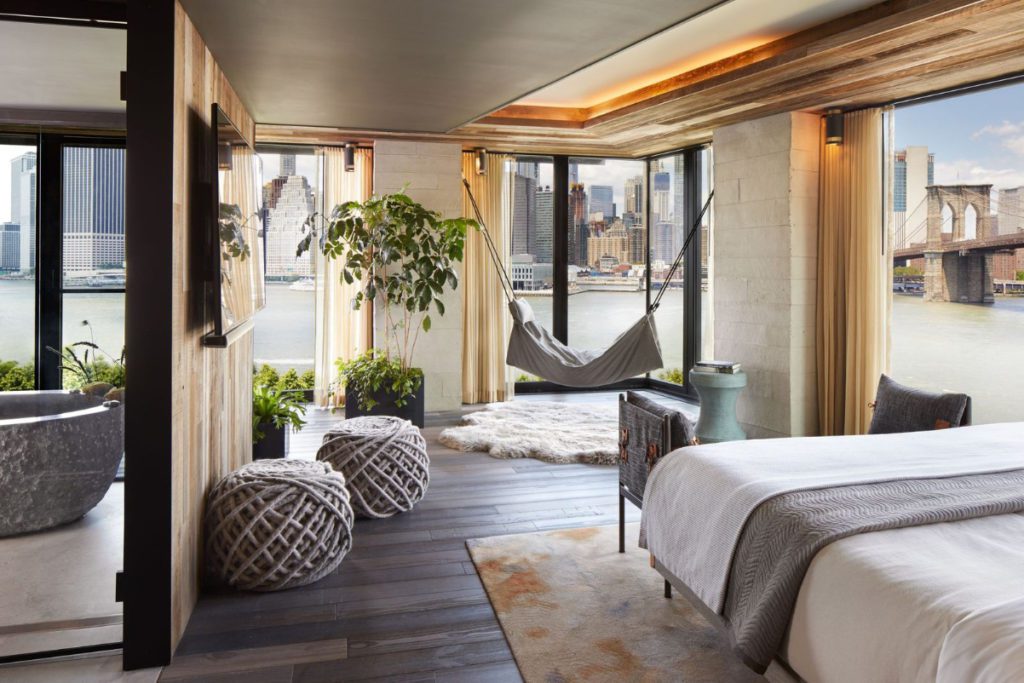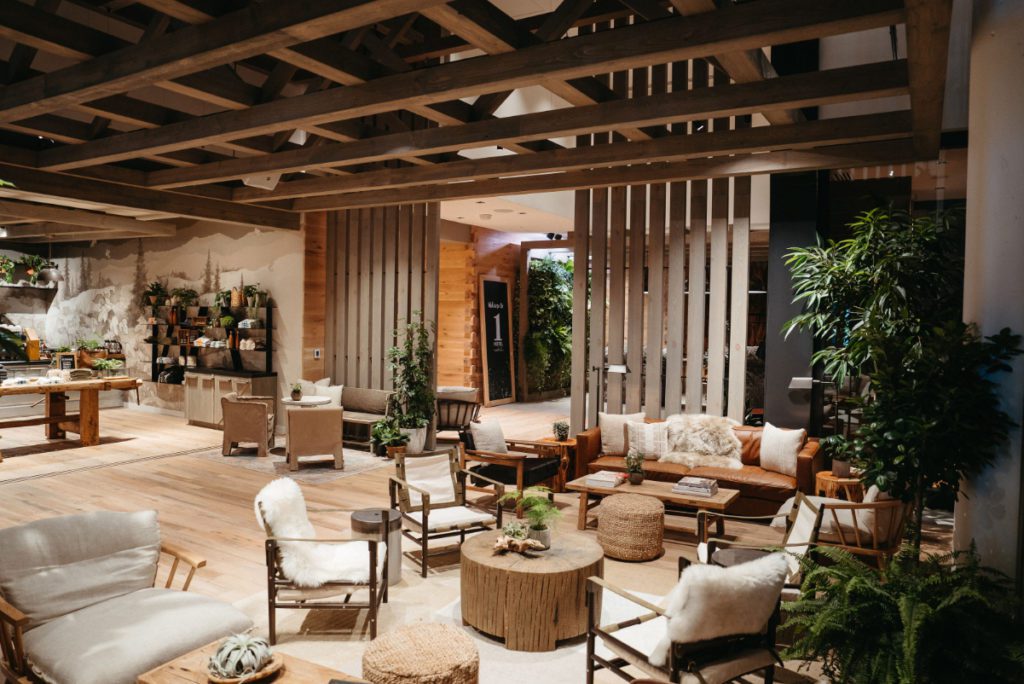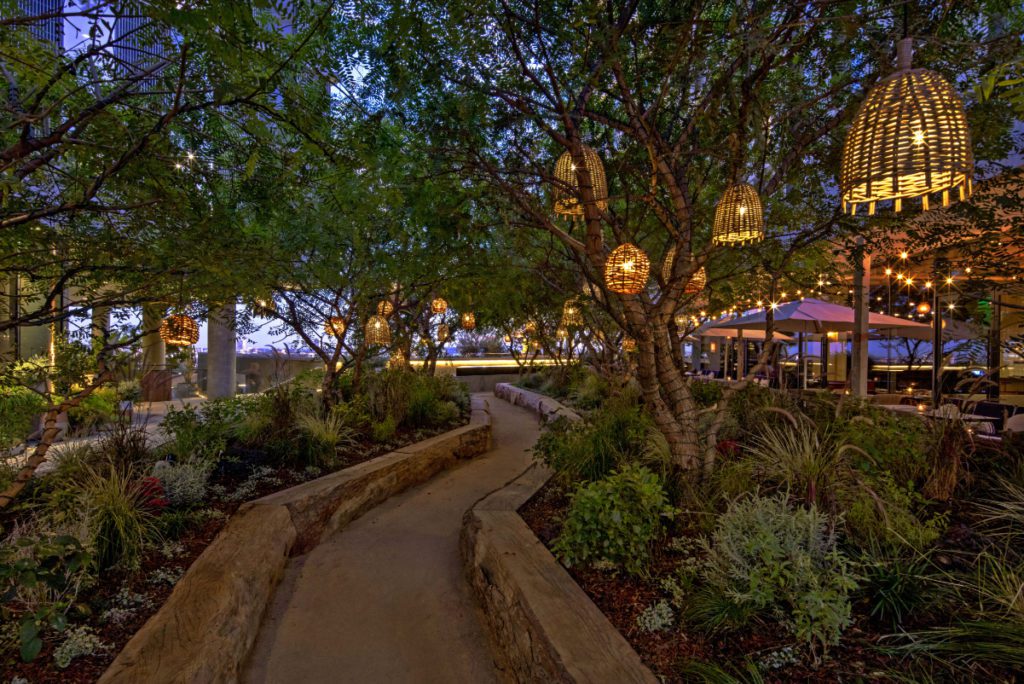Skift Take
Starwood Capital has bet on two trends with SH Hotels. It seems likely that the rich will get richer, boosting demand for luxury hotels. It also seems likely climate change will worsen, increasing the demand for sustainability.

Early Check-In
Editor’s Note: Skift Senior Hospitality Editor Sean O’Neill brings readers exclusive reporting and insights into hotel deals and development, and how those trends are making an impact across the travel industry.
SH Hotels & Resorts is a hotel brand management company owned by Starwood Capital, a real estate investment firm that has invested in 4,000 hotels across the decades. The chairman of both is Barry Sternlicht, creator of W Hotels and builder of the St. Regis Hotels brand.
SH has been busy growing its hard brands 1 Hotel, Treehouse, and Baccarat — plus its soft brand SH Collection.
- In 2022, SH opened 1 Hotel Nashville as a new build and 1 Hotel San Francisco as a conversion, bringing the group’s property total to nine.
- This year it plans to open 1 Hotel Hanalei Bay, 1 Hotel Mayfair, and Treehouse Manchester.
- Its pipeline includes 1 Hotel Austin, Baccarat Rome, and Baccarat Florence.
- The brands run from four stars to “five-plus”-stars. Treehouse is the most relatively affordable and informal. Baccarat, a brand extension from the crystal chandelier maker, is the most design-forward and expensive.
Raul Leal took over as CEO of SH Hotels & Resorts a year and a half ago, after Arash Azarbarzin moved on to lead Highgate.
- “It was a well-run business when I took it over,” Leal said, who had been CEO of Virgin Hotels. “I’ve inherited many things in my life but rarely have I inherited a well-run company.”
- One of Leal’s main goals has been to improve the technology stack used by SH Hotels & Resorts.
- The company signed last year a deal with Salesforce to re-do its customer relationship management software. SH aims to improve how it tracks customer preferences, perhaps as early as midyear.
- Another Leal goal is to fine-tune the group’s marketing and branding. The company is rolling out a loyalty program Mission, across its properties.
- Leal’s goal was revitalization. Several of the properties had biophilic designs, with lots of plants and plant walls — much of which were brutal casualties of covid closures. It has reactivated delayed property upkeep measures, such as at its South Beach resort.
Hotel CEOs always claim their brand appeals to people of all ages. But most niche brands like SH covet a youthful demographic.
- At SH, the typical age range of guests is roughly “between 33 and 49 years old.”
- Starwood previously launched W Hotels, which went after a similar demographic. But W Hotels appears to have lost its luster lately — perhaps reflecting, in part, the danger of chasing after the tastes of a generation. New generations will have new preferences.
- Pursuing a sustainability theme may be one way SH can give its brands longer shelf lives. The climate emergency won’t disappear anytime soon, while interest in the aesthetic of, say, a Moxy, a Kimpton, or a Canopy by Hilton, may not stand the test of time.

SH is betting big on sustainability.
- “We recently did a pretty significant focus group study and found that nine out of ten customers stay with the brand because of its mission,” Leal said.
- The group’s U.S. properties have been carbon neutral since 2018, the company claims.
- For example, the company’s Treehouse Hotel slated to open in Sunnyvale, California, is being constructed partly by repurposing various existing structures.
- The 1 Hotel Nashville that opened last year offers guests in-room chalkboards, in-room carafes made from recycled wine bottles, and closet hangers made from fully recycled paper.
- The group’s new rewards program, Mission, includes options to help carbon offset projects including forest and river conservation, wind projects, and sustainable agroforestry.
- “We’re not activists,” Leal said. “The purpose of the brand is to do all the good you can and be a platform for change. Each building can be symbiotic with nature.”
SH Hotels & Resorts is looking for hotel development partners.
- “The number one criterion is you must be aligned with the sustainability mission and ethos,” Leal said.
- “We’re always going to be the manager,” Leal said. “We’re never going to license. We want to really curate the experience well and consistently.
- SH only co-invests if the partner wants it to. Sometimes bigger investors don’t need its money. SH expects to announce this year a third-party hotel management agreement for a property in California with “a significant institutional partner that has mostly done legacy brands,” Leal said. “we showed them our financial statements across the board and they liked our returns to owners.”
- The company does want to have its own food-and-beverage teams creating the on-site experience because of their expertise.
- Baccarat is for niche cities worldwide. It has New York City. It’s doing Florence, Italy. “We’re looking at Dubai and other markets with similar characteristics,” Leal said.
- 1 Hotels will grow as a brand to about 30 to 50 properties, Leal predicted.

SH sees Treehouse as having the highest growth potential of its brands.
- The Treehouse brand is, like 1 Hotels, interested in sustainability, but it aims to be a bit more affordable, playful, and youthful.
- It’s built to be friendly for converting existing properties, to help accelerate brand growth. In Silicon Valley, for example, a Treehouse is slated next year to open as a conversion of an old Sheraton.
- “I could see owners of hotels nationwide tied to a legacy brand that has outlived its usefulness switching over to Treehouse,” Leal said. “We might buy the portfolio of, say, 10 hotels in different markets with the help of a partner and convert them over.”
- Leal said he sees a lot of legacy brand overhangs. Some older brands in the premium category no longer resonate with younger consumers.
- “If I’m a 35-year-old developer today, I may not do a Marriott Courtyard,” Leal said. “Great brand, but maybe I’ll choose to do something more relevant to my tastes or values.”
Leal said it isn’t critical for his group to reach a certain scale.
- “You used to need to have 100 hotels to compete effectively by getting good terms for distribution,” Leal said. “You don’t need that many anymore.”
- If you work on your revenue management and use the latest online tools, you can drive more direct bookings and avoid depending too much on the online travel agencies,” Leal said. “The amount of demand we get from the OTAs [online travel agencies] is below the industry average for a company of our size.”
- “You need dedicated teams on public relations, social media, and search engine optimization,” Leal said. “It helps when you have a story to tell that’s a little bit special, letting you stand out. There’s a science behind it, of course.”

Keeping the brands small is key to enabling them to maintain their pricing power and high average profit margins.
- “Execution matters beyond having a nice building and pretty furniture,” Leal said. “You can go into two incredibly well-designed hotels but one may feel a little cold, while the other may have a little bit of love in it and feel like someone’s paying attention to the details.”
- W Hotels, a Starwood brand whose star seems to have faded since it was sold to Marriott International, as noted by Accor CEO Sébastian Bazin last week, may be an example of the dangers of “boutique” brands being run by conglomerates.
- “When you’ve got 5,000 hotels in your portfolio, your ability to make an emotional connection with guests is highly dependent on your local property team, so that connection isn’t going to happen at every single one of your 5,000 hotels,” Leal said. “When you have a smaller portfolio, you can keep a close eye on the culture of the teammates in each building.”
I always read tips and feedback. Contact me at [email protected] or through my LinkedIn profile.
Daily Lodging Report
Essential industry news for hospitality and lodging executives in North America and Asia-Pacific. Delivered daily to your inbox.
Have a confidential tip for Skift? Get in touch
Tags: 1 hotels, Barry Sternlicht, carbon offsets, Early Check-In, future of lodging, hotel brands, hotel development, independent hotels, luxury hotels, net zero, sh hotels, Skift Pro Columns, starwood capital, sustainability